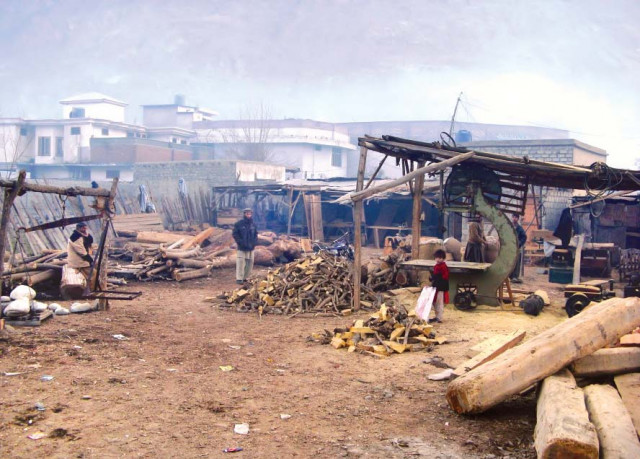Trade route : New policy allows timber transport on Karakoram Highway
Ban had been imposed since the early 1990s to discourage deforestation.

A timber depot lacking firewood for sale sums up the locals’ woes. PHOTO: SHABBIR MIR
The federal government has approved the timber policy for Gilgit-Baltistan (G-B), which will allow the right to transport or dispose of timber along the Karakoram Highway, officials said on Monday.
A ban on transporting chopped timber had been imposed by the government since the early 1990s to discourage deforestation.
Aftab Haider, advisor on forests and wildlife, said previously the total timber in the valley was four million cubic feet (MMcf), of which two million cubic feet had been cut legally and can now be exported. Another 2MMcf of illegally cut timber will only be allowed to be transported within Gilgit-Baltistan.
The G-B cabinet, following the establishment of a regional government in 2009, sent a timber policy to the federal government for approval by the prime minister.

“We are happy the prime minister has honoured our summary,” said Haider, adding that the lifting of the ban is a step forward towards economic prosperity not only in the Diamer valley, but also in G-B.
Days prior to the approval, traders and local communities in Chilas town had been protesting to lift the ban. Traffic on the Karakoram Highway was twice suspended due to the protest, creating difficulties for commuters travelling between G-B and Rawalpindi.
The timber was starting to decay after being exposed to the sun and rains. Chopped timber stock was also piling up on both sides of the highway.
The forests in Diamer district are owned by local communities, but are regulated under the Forest Regulations of 1970 and managed by the G-B Forest Department.
Under the accession deal signed by the government in 1952, the communities of Chilas, Darel and Tangir own the private forests.
Published in The Express Tribune, March 12th, 2013.













COMMENTS
Comments are moderated and generally will be posted if they are on-topic and not abusive.
For more information, please see our Comments FAQ